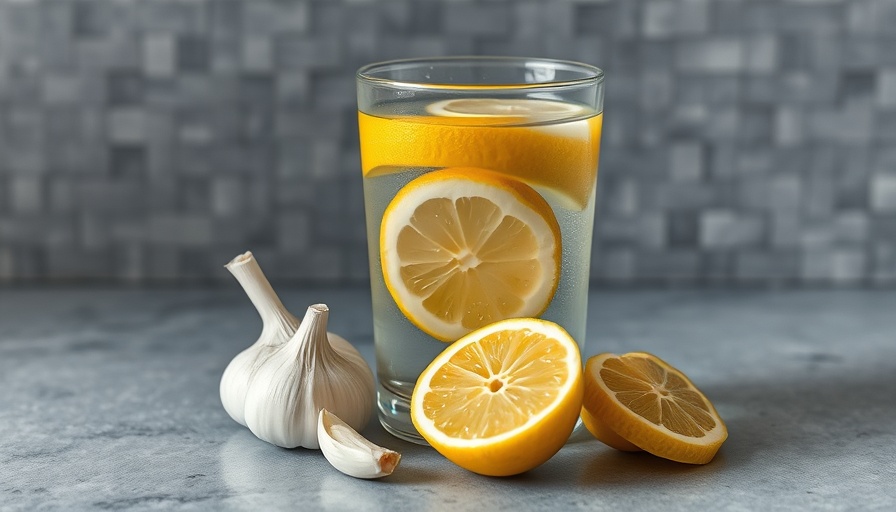
Understanding the Impact of Butter and Vegetable Oils on Health
A recently published study has ignited a debate surrounding the dietary impacts of butter versus vegetable oils on mortality rates. With over 200,000 individuals tracked for about 30 years, the findings have sparked curiosity, controversy, and a flurry of social media discussions. This article breaks down the essential findings of this research and provides actionable insights for health-conscious individuals looking to make informed dietary choices.
In 'Butter vs Vegetable Oil, effect on DEATH | Brand New Study', the discussion dives into the risks associated with different fats, exploring key insights that sparked deeper analysis on our end.
Key Findings: Butter vs. Vegetable Oils
According to the study's findings, high butter consumption was linked with a higher risk of death. Specifically, individuals consuming an average of just 14 grams—or roughly one tablespoon—of butter daily faced a 15% increase in mortality risk. Conversely, higher intakes of vegetable oils were associated with a 16% reduction in overall mortality. This suggests that even small adjustments in dietary fat sources can significantly impact health outcomes.
The specific vegetable oils studied, particularly olive oil, canola oil, and soybean oil, all demonstrated benefits when it came to health and longevity. For instance, every 5 grams of olive oil consumed daily correlated with an 8% lower risk of mortality, highlighting just how vital these healthier fat sources can be.
A Deeper Dive into Fat Consumption Trends
But why do these differences matter? Traditionally, butter has been associated with adverse health outcomes, prompting many to consider substitutes. This research suggests that the switch to vegetable oils could yield essential health benefits. However, the study also emphasizes the complexities of comparing fats, as it's critical to understand what dietary alternatives butter consumers choose. The mystery deepens when considering that butter eaters may replace it with unhealthy options like refined grains or sugary foods, which could skew the results. This intricate relationship between dietary habits can cloud potential conclusions.
Why This Study Matters to You
Understanding the implications of dietary fats is more than just a passing trend—it's about making informed choices that can influence overall health and longevity. As families across the globe ponder their nutrition, especially amid increasing health challenges, the shift towards more plant-based oils may serve as both a healthier and more sustainable option.
Actions You Can Take Today
1. Assess Your Dietary Fats: Take stock of the fats you currently use in cooking and meal preparation. Consider substituting butter with olive oil or canola oil for your everyday cooking needs.
2. Experiment with Flavor: Discover new ways to enhance your dishes using healthier oils. Olive oil can add depth to a salad dressing, while canola oil works great for frying—just remember to mind portion sizes.
3. Stay Informed: Keep educating yourself about dietary trends. Knowledge empowers you to make decisions that align with your health goals, especially in the face of overwhelming social media narratives.
Dispelling Common Misconceptions
One prevalent misconception is that all oils are equally beneficial. The truth is far more nuanced; not all oils provide the same health benefits. For instance, while corn and safflower oils were studied, they did not show the same mortality benefits. This fresher understanding emphasizes the importance of quality when it comes to fats and the impact they can have on your health.
Final Thoughts: Embrace Healthier Choices
This study on butter versus vegetable oils reveals the simplicity that lies within complex dietary choices. By opting for vegetable oils over butter, you may inch closer to improving your health outcomes and increasing longevity. Knowledge is power, and in this case, it's also about making healthier decisions for you and your family.
As we navigate our food choices, it’s essential to approach these findings with a sense of critical clarity. If you want to dive deeper into the world of dietary fats and how they affect your health journey, explore the upcoming resources and articles as we bring fresh insights to the forefront of your wellness path.
 Add Row
Add Row  Add
Add 




Write A Comment